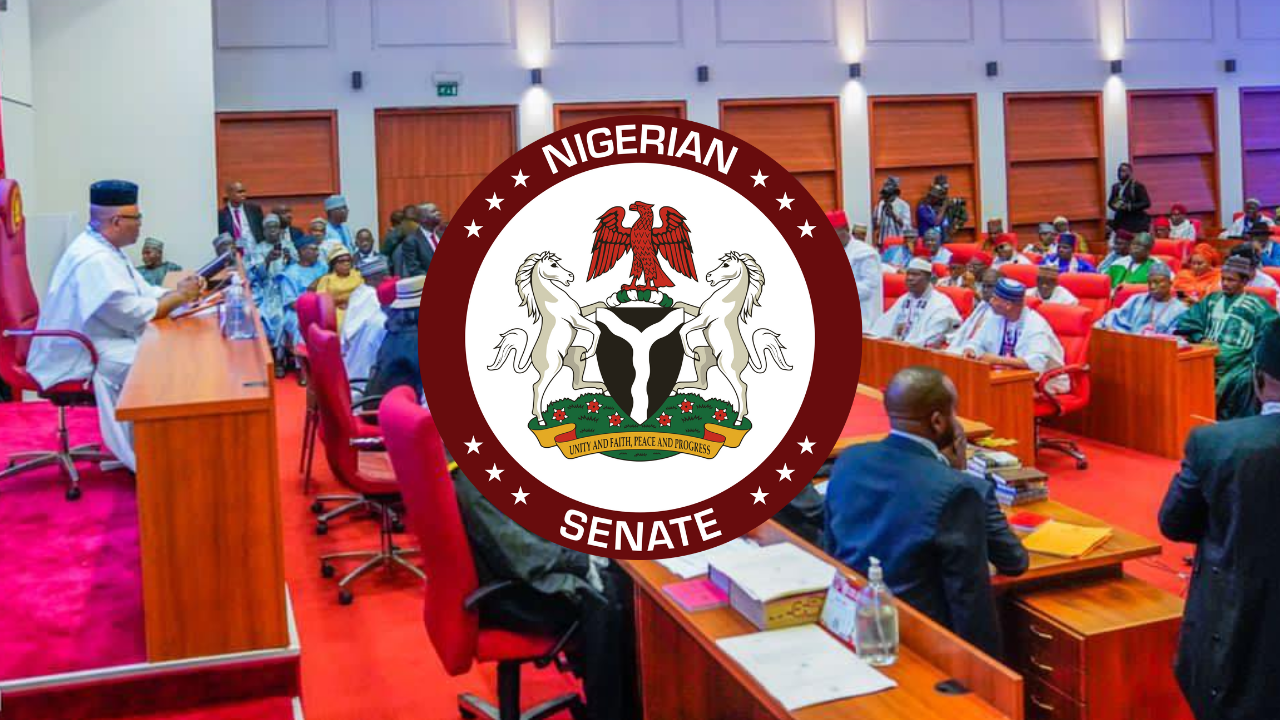NATIONAL NEWS

SENATE’S PROPOSED ELEVATION OF OONI, SULTAN SPARKS NATIONAL CONTROVERSY
What was meant to be a positive step toward officially recognizing the roles of traditional rulers in Nigeria has now triggered national debate and criticism. A bill seeking to establish the National Council of Traditional Rulers of Nigeria is under fire due to a controversial clause that positions the Ooni of Ife and the Sultan of Sokoto above other monarchs in the country.
While the bill aims to constitutionally recognize traditional leadership for national peace and development, many argue that assigning permanent leadership roles to just two monarchs undermines inclusivity and unity.
The legislation, introduced by Senator Simon Bako Lalong of Plateau South and currently with the Senate Committee on Establishment and Public Service, passed its second reading in March. Critics from different regions and cultural organizations are calling the clause divisive and contrary to the principles of fairness and federal character enshrined in the Nigerian Constitution.
The apex Igbo socio-cultural organization, Ohanaeze Ndigbo, has firmly rejected the clause, calling it unjust, ethnically biased, and an insult to equitable representation. Speaking on behalf of the group, Dr. Ezechi Chukwu, its National Publicity Secretary, warned that the bill threatens national unity by marginalizing traditional rulers from the South-East, South-South, and Middle Belt.
“We are shocked by the Senate’s disregard for equity and fairness. This bill does not reflect the spirit of democracy or Nigeria’s federal structure,” Chukwu stated, urging for a complete withdrawal of the proposal in its current form.
Echoing similar concerns, the Middle Belt Forum (MBF) also condemned the clause elevating the Sultan of Sokoto, describing it as a distortion of historical facts and a violation of indigenous dignity. The group pointed out that the Sultanate is a younger institution compared to ancient Middle Belt monarchies like the Kwararafa Confederacy and the Igala Kingdom.
“The Attah of Igala, Tor Tiv of Tivland, and Etsu Nupe hold deep-rooted, pre-colonial cultural authority that predates the Sokoto Caliphate,” the MBF stated, noting that such monarchs should not be subordinated under any form of imposed hierarchy.
The forum also raised concerns over the religious nature of the Sultan’s position, arguing that his role as the spiritual head of Nigerian Muslims contradicts the secular spirit of the Constitution. “A national council led permanently by a religious leader alienates other faiths and promotes religious imbalance,” the group argued.
Referring to historical resistance against the Sokoto Caliphate by Middle Belt communities, the group criticized the colonial legacy that placed indigenous ethnic groups under Emirate systems. It warned that passing the bill in its current form could trigger widespread resistance and even a boycott by traditional rulers in the region.
“If passed, we will mobilize ethnic nationalities in the Middle Belt to reject and withdraw from such a council. We will create our own autonomous council that reflects our values and history,” the MBF declared, recommending instead that the chairmanship of the proposed council be rotational and tenure-based to ensure fairness and representation.
The Concerned Hausa Stakeholders also voiced strong objections, calling the bill historically inaccurate and constitutionally indefensible. According to the group, Nigeria is not a two-ethnic federation of Fulani and Yoruba, and any elevation of traditional rulers must recognize the country's multi-ethnic reality.
They emphasized that the Sultan of Sokoto, officially the “Sarkin Musulmi,” holds religious legitimacy specific to Islam and the Fulani people, not cultural representation for the Hausa or broader northern traditional systems. “If religious leadership is the basis, then Christian leaders such as the President of CAN should also be included,” they noted.
The group argued that historic Hausa kingdoms such as Kano, Katsina, Zaria, and Daura predate the Sokoto Caliphate and have their own cultural institutions deserving of equal recognition. They criticized the proposal for excluding the Igbo, Kanuri, Ijaw, Tiv, and others with long-standing traditional structures.
“This bill promotes ethnic superiority and risks entrenching resentment and disunity. No single ruler, no matter how revered, can speak for an entire region or religion,” the group maintained.
The Alaigbo Development Foundation (ADF) added its voice, calling the bill an insult to Nigeria’s cultural diversity. The group urged President Bola Tinubu and lawmakers of Igbo extraction to reject the proposal, warning that it threatens national cohesion and fairness.
Even within the South-West, the proposed elevation of the Ooni of Ife has sparked criticism. A university lecturer, Femi Adebowale, described the move as disrespectful to other Yoruba monarchs, particularly the Alafin of Oyo.
“The Ooni does not hold higher authority over the Alafin, Alake, or other first-class Yoruba kings. He represents the Osun people, not the entire Yoruba nation,” he stated.
Caleb Osazuwa, a Lagos-based lawyer from Edo State, also dismissed the idea that the Ooni can speak for all Southern monarchs, calling the proposal “the greatest joke of the century.”
“No one can suggest that the revered Oba of Benin would be subordinate to the Ooni. A true council must represent all ethnic nationalities fairly and equitably,” he asserted.
Many stakeholders across the country are now urging lawmakers to reconsider the bill and ensure that any nationally recognized council of traditional rulers upholds the principles of federal character, historical truth, and inclusive representation. Suggestions include rotational or democratically elected chairmanship, reflecting Nigeria’s rich cultural pluralism.
"This represents a significant development in our ongoing coverage of current events."— Editorial Board









